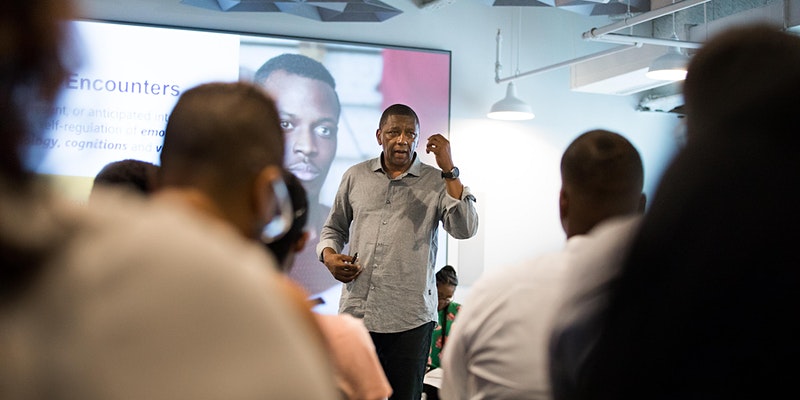Author: Howard C. Stevenson, Ph.D.
Protests around the world are calling for change but will this change impact the well-being of our children, friends, and communities? Don’t hold your breath.
In 2013, my 8 year old son and I were folding clothes while the TV was on. He became glued to the TV as Trayvon Martin’s parents were crying after the acquittal of George Zimmerman. He was shocked and angry and asked me questions I was unprepared to answer. Most Black and Brown parents who give their children the “Race Talk” to protect them (as I did for my oldest son when he was 8), usually initiate it. Our conversation became the theme of my TED Talk where I proposed ways to manage the negative health effects of racial stress. That was 7 years ago. I’m still worried and so is he.
At 15, I asked him about that earlier conversation. While I was excited about his agency and emotional honesty about the problem of racism and brutality, I was saddened that he fears being stopped by a cop while driving in the future. BYMOC and their parents must worry that teachers, police, and strangers will stalk our children while walking, talking, sleeping, or breathing.
We know more now about how the unaddressed stress and trauma of racism affects the physical and emotional health of boys and young men of color (BYMOC). We are hampered by exposure to a higher incidence of racial profiling, harassment, and police brutality. Worrying that these assaults could occur at any time compounds the detriment to our mental health. This burden is what Dr. David Williams (Harvard University) calls “racial vigilance” and it affects how BYMOC breathe and how they sleep.
For too long, we have witnessed health, justice, work, and education systems eagerly withhold four basic elements for humane treatment from BYMOC: protection, affection, redirection, and connection. Being serious about our health requires a fundamental re-construction of all systems—large and small—centered on effectively providing these elements. Whether the job is to protect and serve, teach and inspire, or examine and heal, anything less is inhumane and unacceptable. Can you imagine the country this could be if “helpers” in every system would deliver protection, affection, redirection, and connection to BYMOC as competently as this country bails out banks? Not only would BYMOC heal, grow, and thrive, but they would do so without looking over their shoulders or sleeping with one eye open.
